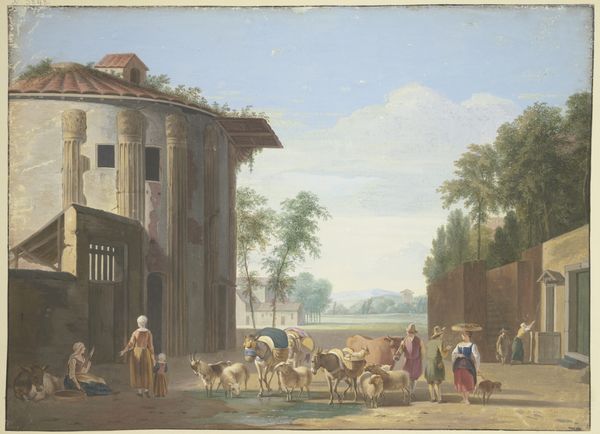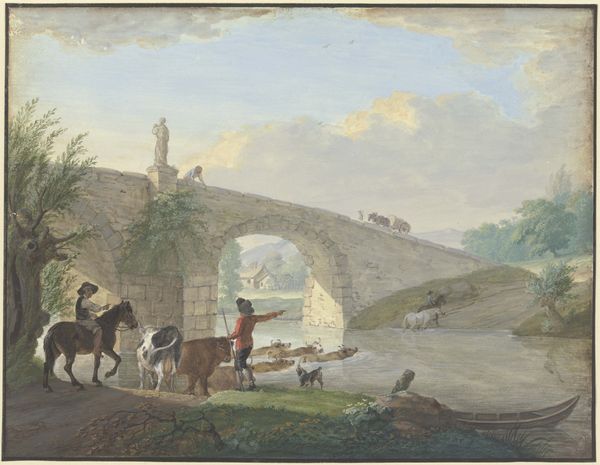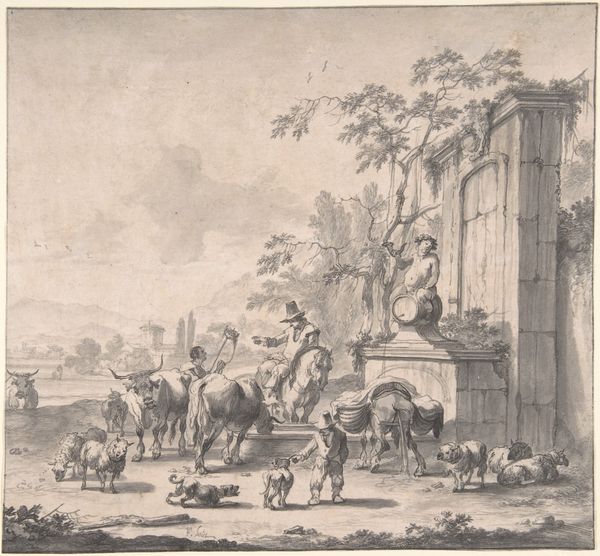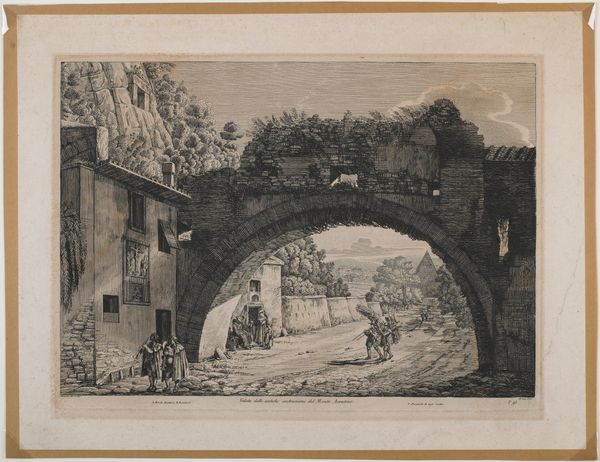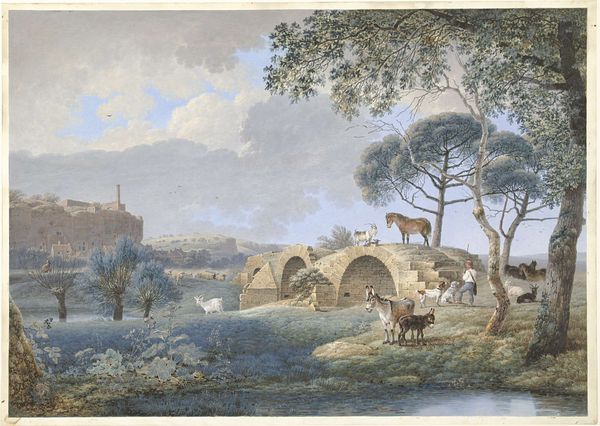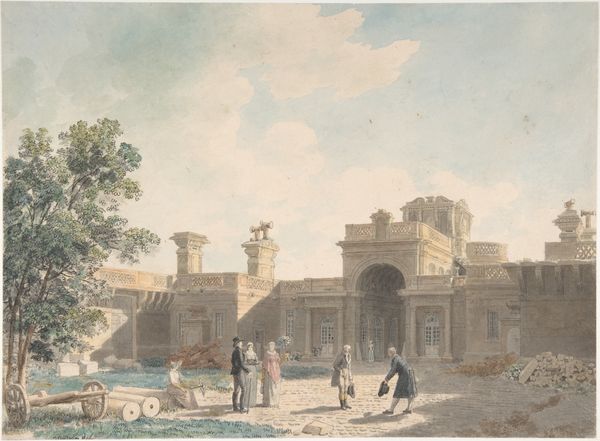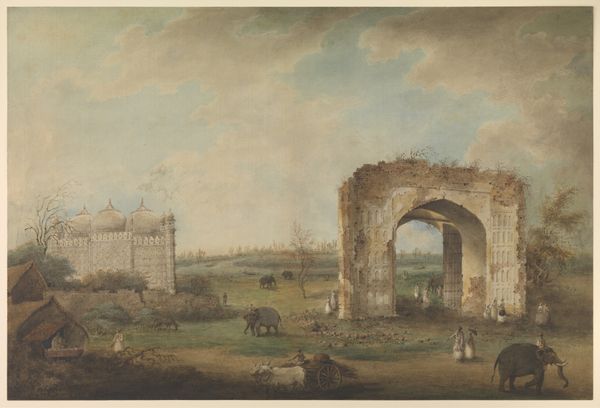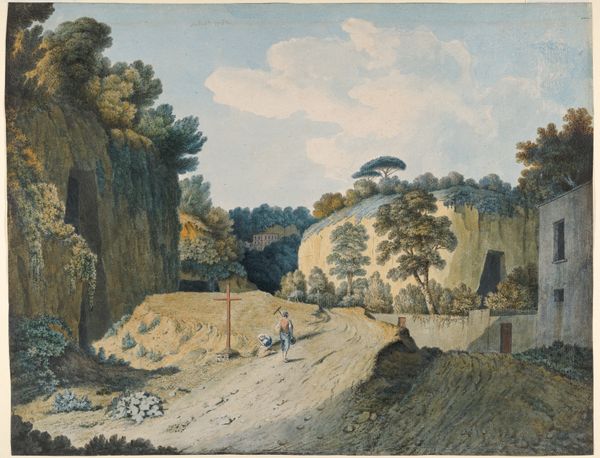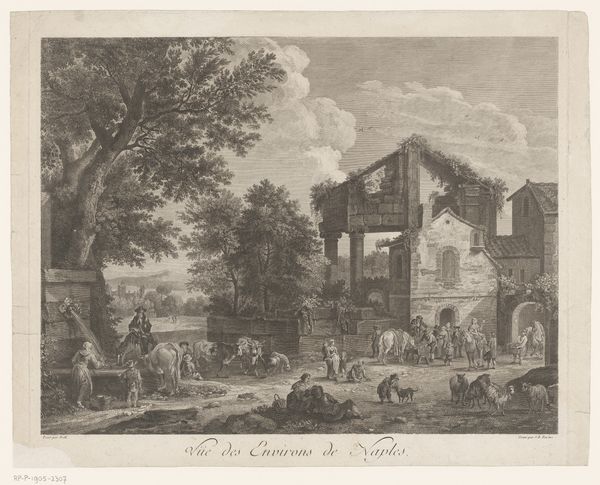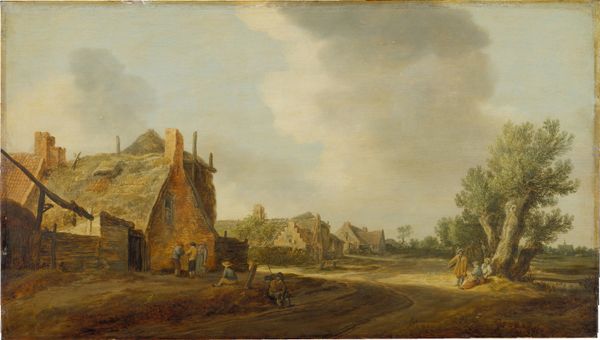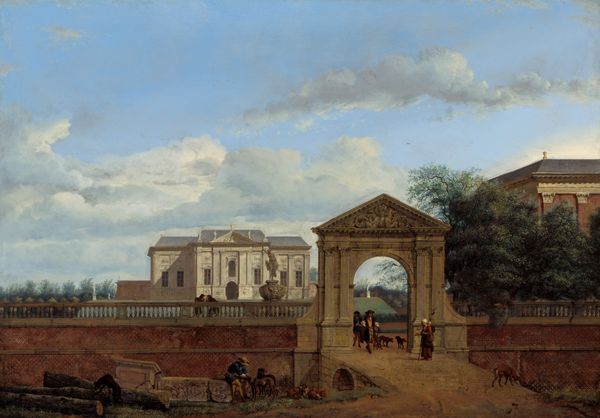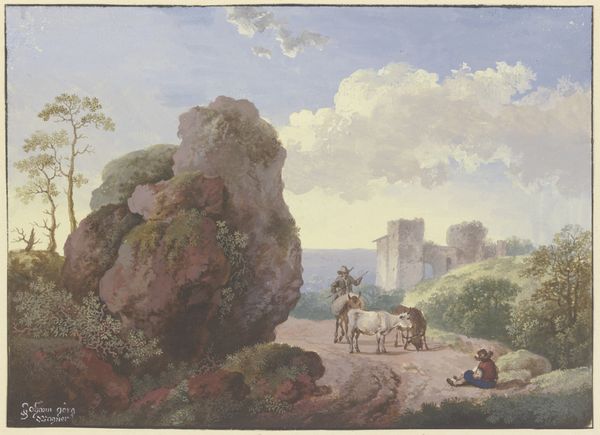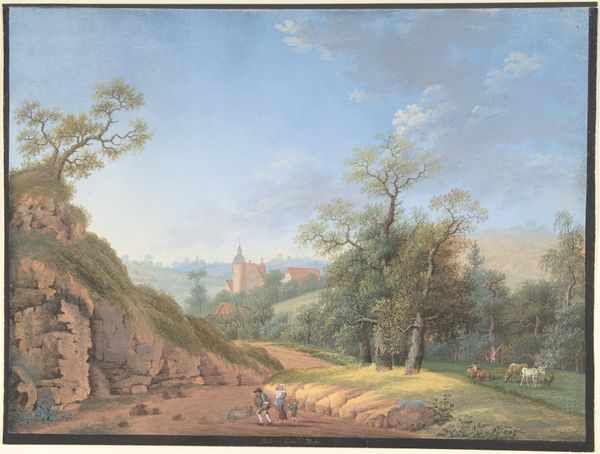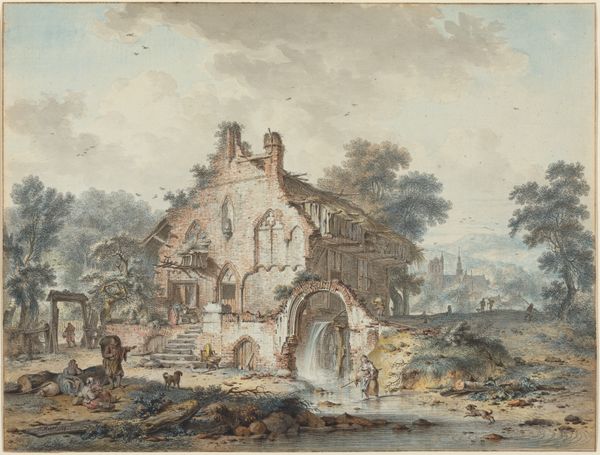
drawing, paper, watercolor
#
drawing
#
netherlandish
#
baroque
#
landscape
#
paper
#
watercolor
#
15_18th-century
#
14_17th-century
#
cityscape
#
watercolour illustration
#
genre-painting
#
watercolor
Copyright: Public Domain
Editor: So, this piece is called "Ein Hirte treibt sieben Schafe durch ein Stadttor," which I believe translates to "A Shepherd Drives Seven Sheep Through a City Gate." It’s attributed to Regnu and appears to be a watercolor and ink drawing on paper. It's charming. What really grabs my attention is the way the light defines the textures of the brick and stone alongside these little moments of daily life playing out. What do you see in this work? Curator: I see a material record of urban life and its dependence on rural economies. The imposing city gate, rendered in meticulous detail, speaks to the power structures and trade networks of the time. But let's look closer at how the sheep, and the shepherd's labor, are being integrated into that context. These animals represent commodities and subsistence. Notice also the market scene—what goods do you think they're selling? Editor: Maybe grain? Or some other agricultural product. I guess the whole image underscores the relationship between the city and the countryside. Curator: Exactly. And consider the labor involved in creating the artwork itself. The process of making paper, the sourcing of pigments, the artisan skills required for precise drawing. These were all forms of work that shaped artistic production and reflect larger economic forces. What kind of consumption is being suggested, besides literal foodstuff? Editor: You mean like... artistic patronage? Curator: Precisely. This piece reminds us that even scenes of seemingly simple pastoral life are embedded within complex networks of materials, labor, and capital. So it's less about the sentimental mood and more about the real economic engines operating behind it. Editor: That’s really fascinating. I'll definitely look at art differently now, thinking about its creation as a kind of labor itself.
Comments
No comments
Be the first to comment and join the conversation on the ultimate creative platform.
